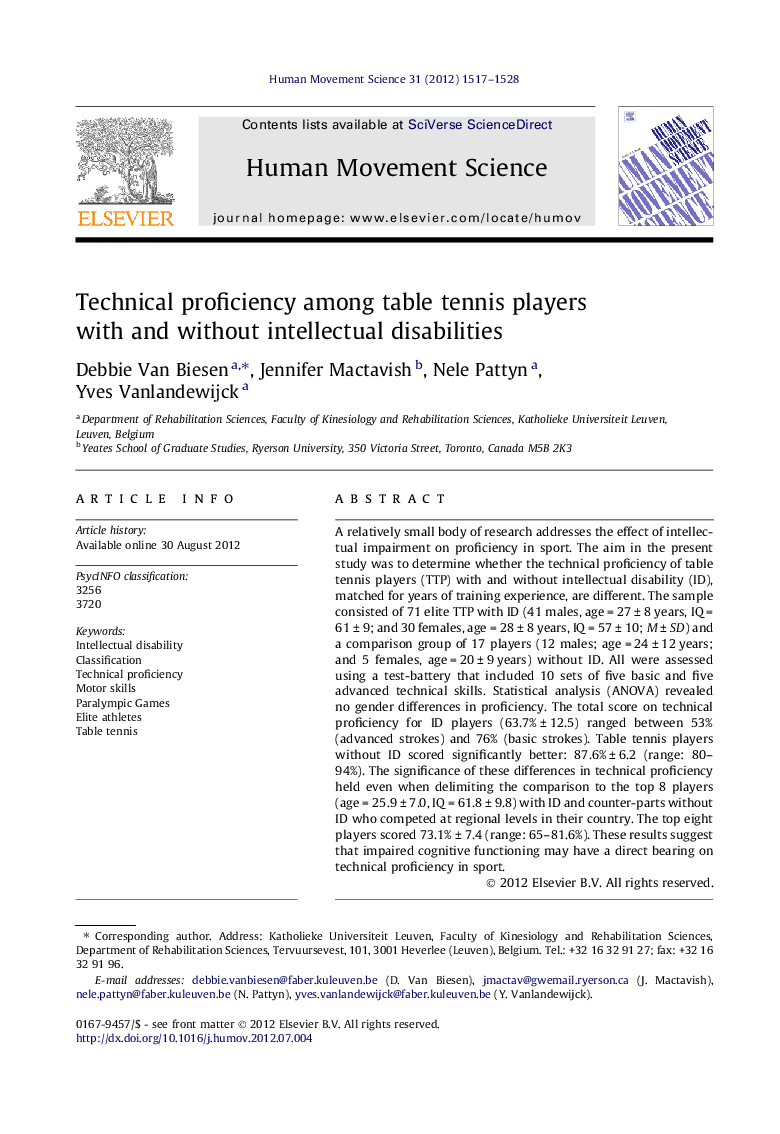| Article ID | Journal | Published Year | Pages | File Type |
|---|---|---|---|---|
| 928513 | Human Movement Science | 2012 | 12 Pages |
A relatively small body of research addresses the effect of intellectual impairment on proficiency in sport. The aim in the present study was to determine whether the technical proficiency of table tennis players (TTP) with and without intellectual disability (ID), matched for years of training experience, are different. The sample consisted of 71 elite TTP with ID (41 males, age = 27 ± 8 years, IQ = 61 ± 9; and 30 females, age = 28 ± 8 years, IQ = 57 ± 10; M ± SD) and a comparison group of 17 players (12 males; age = 24 ± 12 years; and 5 females, age = 20 ± 9 years) without ID. All were assessed using a test-battery that included 10 sets of five basic and five advanced technical skills. Statistical analysis (ANOVA) revealed no gender differences in proficiency. The total score on technical proficiency for ID players (63.7% ± 12.5) ranged between 53% (advanced strokes) and 76% (basic strokes). Table tennis players without ID scored significantly better: 87.6% ± 6.2 (range: 80–94%). The significance of these differences in technical proficiency held even when delimiting the comparison to the top 8 players (age = 25.9 ± 7.0, IQ = 61.8 ± 9.8) with ID and counter-parts without ID who competed at regional levels in their country. The top eight players scored 73.1% ± 7.4 (range: 65–81.6%). These results suggest that impaired cognitive functioning may have a direct bearing on technical proficiency in sport.
► There is a big gap in technical proficiency between table tennis players with and without ID. ► Differences between players with and without ID are larger for advanced strokes. ► Impairments in cognitive functioning may impact directly on technical sport proficiency. ► Reinclusion of ID athletes in the Paralympics could contribute to professionalizing of high level ID sports.
